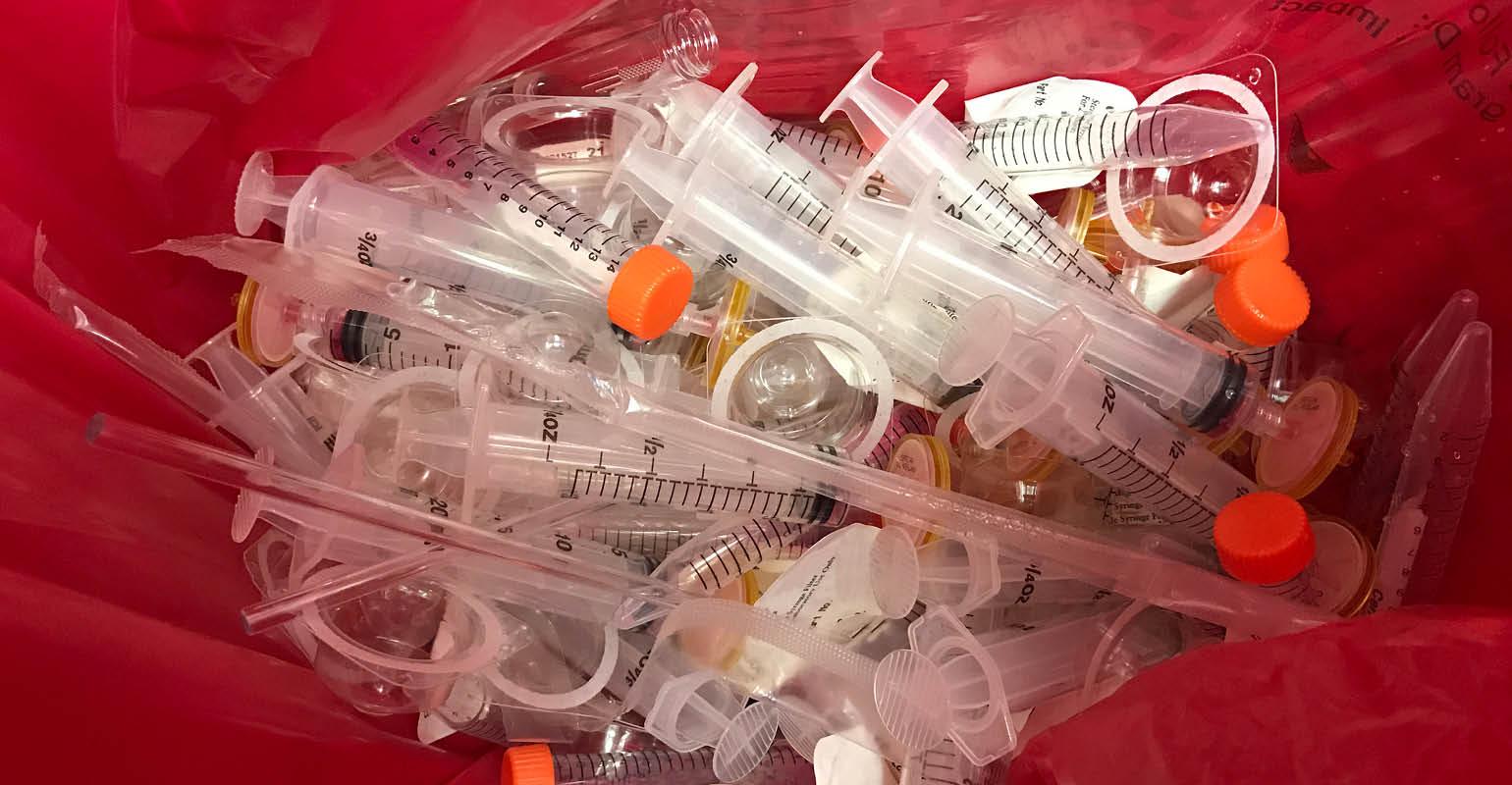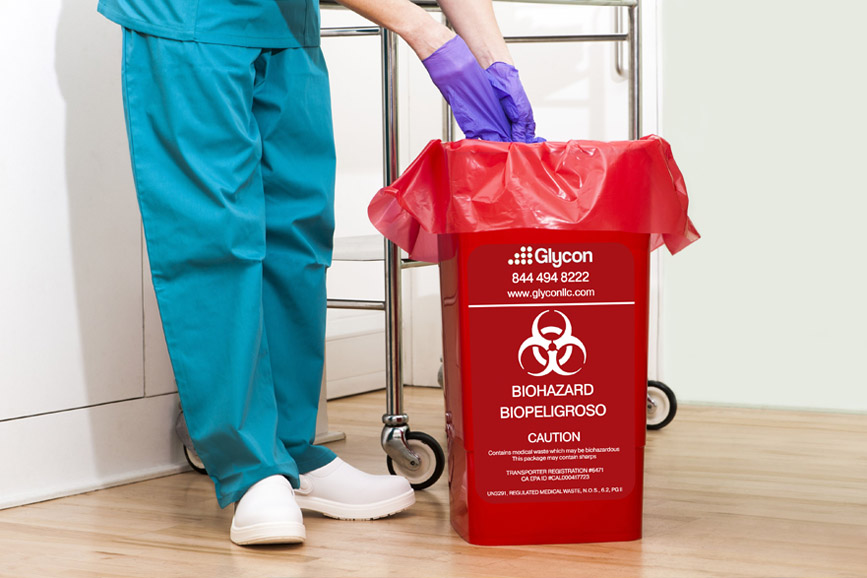Defending Health: Unveiling the Significance of Expert Medical Waste Removal
Defending Health: Unveiling the Significance of Expert Medical Waste Removal
Blog Article
Keep Ahead of Laws: Expert Recommendations on Medical Garbage Disposal
In a world where the healthcare market is frequently evolving, it is vital for medical facilities to remain ahead of policies when it comes to the appropriate disposal of clinical waste. From recognizing the various classifications of medical waste to applying the ideal collection and partition techniques, this conversation will provide useful insights and actionable suggestions to aid centers stay in advance of policies in the ever-changing landscape of medical waste disposal.
Comprehending Medical Waste Categories
Understanding medical waste categories is essential for proper disposal and monitoring in health care facilities. Medical waste describes any kind of waste produced by medical care activities that may posture a risk to public wellness or the atmosphere. It is vital to categorize medical waste precisely to ensure its risk-free handling, disposal, transportation, and treatment.
There are a number of groups of medical waste that medical care facilities need to be acquainted with. The most typical categories consist of contagious waste, pathological waste, sharps waste, pharmaceutical waste, and chemical waste. Each category has specific guidelines and regulations for its correct management and disposal.
Pathological waste refers to human cells, organs, or body components that require special handling and disposal. Pharmaceutical waste makes up ended, unused, or contaminated medications that require mindful handling and disposal.
Remaining Up-To-Date With Regulatory Changes
Remaining existing with governing adjustments is critical for health care centers to make sure conformity and correct management of clinical garbage disposal. medical waste removal service. With policies continuously developing, it is essential for medical care centers to remain updated to stay clear of fines, fines, and prospective harm to the environment and public health and wellness
To stay in advance of regulatory changes, healthcare centers need to establish a system for tracking and tracking updates. This can be done by registering for governing e-newsletters, participating in workshops and conferences, and proactively joining sector associations. Furthermore, centers must mark a team member or team accountable for remaining informed and disseminating information to appropriate stakeholders.
Regular interaction with regulatory agencies is also essential. Medical care facilities need to establish relationships with local, state, and government firms to ensure they are mindful of any kind of changes in laws that might influence their waste management practices. This can be done through normal meetings, participation in public remark durations, and proactive interaction with regulative agencies.
Furthermore, medical care facilities need to take into consideration partnering with waste administration business that concentrate on medical waste disposal (medical waste disposal services with WasteX). These business are commonly fluent in the most recent regulations and can supply support and support to make certain compliance
Applying Correct Collection and Partition Approaches
To effectively take care of medical waste disposal, medical care centers need to establish appropriate collection and segregation methods in conformity with regulative standards. Executing these approaches guarantees the safe handling and disposal of possibly dangerous products, safeguards the atmosphere, and reduces the risk of infections and injuries to health care workers and the basic public.
Proper collection and partition techniques entail using marked containers and classifying systems. Healthcare centers need to give clearly labeled containers for various kinds of clinical waste, such as sharps, contagious waste, pharmaceutical waste, and non-hazardous waste. These containers should be color-coded and clearly significant to stay clear of complication and advertise very easy identification.
Furthermore, medical care facilities ought to train their team on the correct procedures for gathering and setting apart clinical waste. This consists of educating them on the various sorts of waste, the appropriate containers to utilize, and the relevance of following laws and guidelines. Regular training sessions and refresher course courses need to be conducted to make certain that employee stay up-to-date on finest techniques.
In addition, healthcare centers must establish a system for regular collection and disposal of medical waste. This might include partnering with licensed waste administration firms that concentrate on clinical waste disposal. These firms will make sure that the accumulated waste is carried and disposed of in conformity with regulative demands.
Selecting the Right Disposal Approaches

Incineration is one of one of the most typical and reliable techniques for disposing of particular kinds of clinical waste, such as pathological waste and sharps. It entails the controlled burning of waste at heats, reducing it to ash. Nevertheless, incineration can launch unsafe pollutants into the air and add to air contamination.

Other disposal techniques consist of chemical treatment, microwave therapy, and landfilling. Chemical therapy entails making use of chemicals to reduce the effects of the waste and decontaminate. Microwave treatment utilizes microwave power to heat and sanitize the waste. Landfilling includes burying the waste in a designated landfill location (medical waste disposal services with WasteX). Nevertheless, landfilling must be the last hope as a result of the possible risk of contamination to soil and groundwater.
Guaranteeing Conformity With Documentation and Training
After carefully taking into consideration the appropriate disposal techniques for medical waste, healthcare facilities need to ensure compliance with regulations and reduce environmental impact by applying efficient documents and training procedures. This action is essential in preserving a lasting and risk-free setting for both medical care workers and the public.

Training is just as vital in making certain compliance with guidelines. Healthcare employees who take care of clinical waste must receive suitable training on waste segregation, dealing with, and disposal procedures. This training must cover subjects such as the correct use personal safety tools, identification of various types of waste, and the right disposal techniques for each waste group. By supplying detailed training, medical care facilities can encourage their personnel to make enlightened choices and reduce the danger of incorrect garbage disposal.
Final Thought
In verdict, remaining ahead of policies in clinical waste disposal is vital for medical care facilities. medical waste removal service. Comprehending the various groups of clinical waste, remaining updated with regulative adjustments, applying correct collection and partition techniques, picking the appropriate disposal methods, and making sure compliance with documentation and click here for info training are all vital steps. By adhering to these guidelines, medical care organizations can successfully take care of and get rid of of clinical waste in a responsible and secure fashion
From understanding the different classifications of medical waste to applying the best collection and partition approaches, this conversation will supply actionable ideas and useful insights to help centers remain ahead of regulations in the ever-changing landscape of clinical waste disposal. - medical waste disposal services with WasteX
The most common categories consist of infectious waste, pathological waste, sharps waste, pharmaceutical waste, and chemical waste. Healthcare centers ought to give clearly identified containers for various types of clinical waste, such as sharps, contagious waste, pharmaceutical waste, and non-hazardous waste. Medical care centers must develop an extensive system to videotape and track all aspects of medical waste disposal, including types of waste produced, quantities, and disposal techniques made use of. Medical additional resources care workers that manage medical waste ought to receive ideal training on waste partition, managing, and disposal treatments.
Report this page